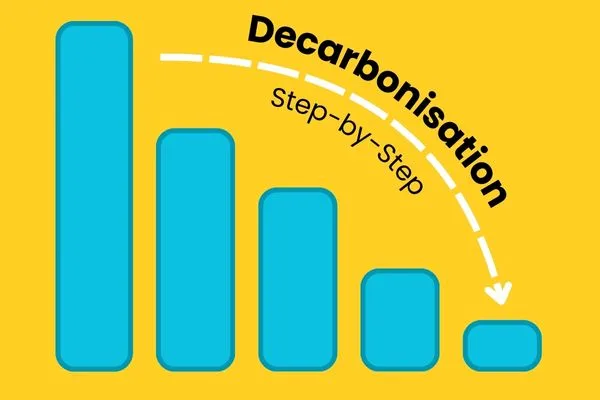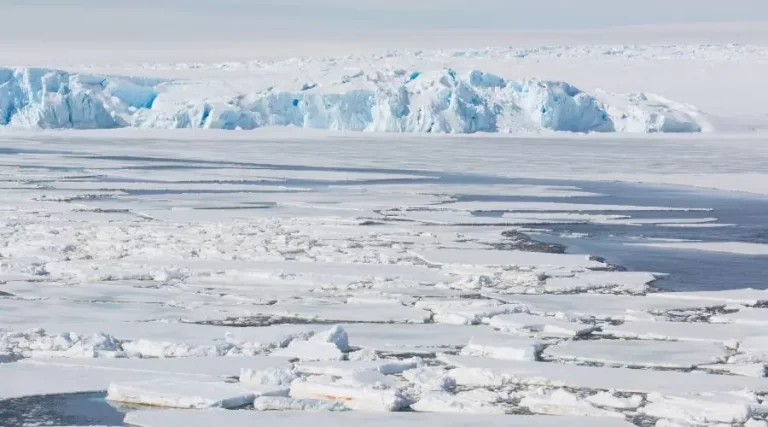Careers in Climate Change: Key Skills and Job Roles
Looking to start or boost your career combating climate change? Here are the key skills you need and vital job roles to consider!
Key Skills For Effective Climate Change Careers
As the demand for professionals dedicated to combating climate change increases, so does the need for specific skills and experiences.
Whilst key job roles each have unique requirements, several key competencies are essential across the board. Here’s what you need to succeed and deliver impact in this growing field:
1. Passion for Sustainability and Environmental Stewardship

First and foremost, a genuine passion for environmental issues and a commitment to sustainability are invaluable in any climate-related role.
This passion drives innovation, inspires collaboration, and motivates you to pursue long-term solutions to combat climate change. It also helps you connect more deeply with your work, colleagues, and the communities you serve.
If you have the passion, then developing the other key skills you need, and ultimately delivering impact, will come naturally.
2. Base Technical Expertise and Education
Having, or being willing to develop, a strong technical background is critical.
For many Climate Change related positions, a degree in fields like engineering, environmental science, computer science, or data analytics is typically sought. Specialisation in renewable energy, climate science, or other related disciplines can also be advantageous.
For technical roles, employers often seek candidates with experience in using various specialised software tools and data modelling capabilities.
If you’re are in, or targeting a more policy focused role, then its possible to progress with less technical focused qualifications. However, it’s highly beneficial for delivering effective action if you develop and maintain technical awareness. This will support your abilities to collaborate with those technical positions and ultimately achieve better policy outcomes.
3. Analytical and Problem-Solving Skills

Whether you’re focus on carbon reduction, climate resilience, or working in data science, the ability to analyse complex information and develop practical solutions is vital.
Professionals in these roles need to assess environmental impact, calculate carbon footprints, interpret large datasets, and model future climate scenarios.
Strong analytical skills enable you to identify trends, make data-driven decisions, and propose effective strategies to mitigate the effects of climate change.
4. Knowledge of Environmental Policies and Regulations
Understanding the regulatory landscape is crucial. A thorough knowledge of international agreements, local environmental law and policy.
Familiarity with frameworks such as the Paris Agreement and the Sustainable Development Goals (SDGs), as well as carbon pricing mechanisms, will help you navigate the complexities of climate policy and ensure compliance for the organisations you work with.
Membership of professional bodies, such as IEMA, The IES and The ISSP, is a great way to keep up with future developments.
5. Communication and Interpersonal Skills

Effective communication is key in roles that involve collaboration, education, or advocacy.
Being able to convey complex information in a clear and concise manner is essential for influencing stakeholders, educating the public, and fostering cooperation among diverse groups. You should be able to adapt your communication style to suit different stakeholders and avoid excess jargon where possible.
Strong interpersonal skills are also important for working effectively in multidisciplinary teams and building relationships with clients, colleagues, and community members.
6. Project Management and Organisational Abilities
Roles in climate change often involve managing multiple projects, from implementing decarbonisation to developing sustainability plans.
Strong project management skills, including the ability to plan, execute, and oversee projects efficiently, are crucial. This includes managing budgets, timelines, and resources, as well as coordinating with different stakeholders to ensure project success.
Consider developing and evidencing your project management capabilities through training courses, such as those delivered by the Association of Project Management or the Project Management Institute.
7. Adaptability and Continuous Learning

The field of climate change is rapidly evolving, with new technologies, policies, and scientific discoveries emerging regularly.
Professionals in this space must be adaptable and committed to continuous learning. Staying updated with the latest developments in renewable energy, climate science, and sustainability practices will keep you ahead of the curve and ready to tackle new challenges as they arise.
Gaining Relevant Experience

Securing a role in these growing fields often requires a combination of education and practical experience.
If your new to the field, internships, volunteer work, and research projects can provide valuable hands-on experience. As well as help you build a useful contacts network within the sustainability and climate sector.
Joining professional organisations, attending conferences, and participating in workshops can also expand your professional connections.
Job Roles To Combat Climate Change
As the effects of climate change become increasingly evident, there’s a growing demand for professionals dedicated to combating environmental challenges.
Business, governments, and non-profits worldwide are seeking talented individuals to help address the challenge of climate change through innovative solutions and sustainable practices.
If you’re passionate about making a difference and want to align your career with the fight against climate change, consider these five job roles growing in popularity.
1. Carbon Reduction Manager

Carbon Reduction Managers are at the forefront of combating climate change, identifying and implementing ways to reduce carbon emissions.
To do so, they develop wide ranging, multi-year strategies that aim for low-carbon operation, consider technological progression and account for financial viability.
These strategies formed will cover a series of decarbonisation projects, alongside development of carbon offsetting plans to net-off emissions that are not yet able to be addressed. This is the basis for achieving a ‘Net Zero’ position.
They work in both in private businesses and government organisations, as well as in the charity sector.
A strong understanding of environmental science, economics, and climate policy is essential for this role, along with analytical skills and proficiency in data analysis tools.
2. Renewable Energy Engineer

Renewable energy engineers design, develop, and maintain renewable energy systems like solar, wind, geothermal and hydroelectric power.
They work on everything from small-scale residential installations to large-scale utility projects.
By designing and implementing renewable energy systems, they help reduce greenhouse gas emissions and promote sustainable energy practices. In turn, Renewable Energy Engineers play a crucial role in addressing change change.
The role requires a solid foundation in engineering principles, a deep understanding of renewable energy technologies, and a passion for innovation.
3. Environmental Data Analysts

As the fight against climate change becomes more data-driven, the role of environmental data analysts is growing.
These professionals study environmental trends, model climate scenarios, and predict future changes in the Earth’s climate. By interpreting vast amounts of data from satellites, sensors, and climate models, environmental data analysts provide critical insights that inform climate policy and conservation efforts.
Data analysts in this field typically work with government agencies, research institutions, and environmental organisations.
A background in statistics, computer science, and environmental science is essential for this role, along with expertise in programming languages.
4. Climate Resilience & Adaptation Consultant

Climate resilience consultants help organisations and communities adapt to the impacts of climate change. Given the trajectory of climate change emerging and projected, a growing need for these roles is inevitable.
They assess vulnerabilities, develop adaptation strategies, and implement measures to reduce risks associated with climate-related events, like extreme weather and sea-level rise. Ultimately, they help ensure that societies can adapt to changing conditions and build a more resilient future.
A detailed knowledge of climate change projections, risk management, and expertise in disaster preparedness are highly beneficial.
5. Sustainable Agriculture Specialist

Sustainable agriculture specialists promote environmentally friendly farming practices to reduce greenhouse gas emissions, conserve resources, and protect biodiversity.
They may work with farmers to implement sustainable techniques like organic farming, agroforestry, and precision agriculture. In doing so, not only to these specialists aim to balance our impact on the environment, but also support development of a food production system that is resilient to climate change.
6. Green Finance Specialists

The range of work carried out by roles combating climate change doesn’t happen without financial backing, and that’s were green finance specialists come in.
Green finance roles specialise in development of investment models that make business sense of green opportunities, such as decarbonisation and climate resilience projects, or carbon offsetting developments.
Alongside this, they develop investments that can redirect returns back into further green projects, escalating the rate of finance investing in a sustainable future.
Expertise in finance, economics and a strong understanding of climate and sustainability priorities is key for success.
Climate Change Careers: Key to Our Future

The fight against climate change is creating new career opportunities across various fields.
From renewable energy engineering and environmental data science to urban planning and carbon analysis, there are numerous ways for individuals to contribute to a more sustainable future.
As the world continues to grapple with the impacts of climate change, these roles will become increasingly important in shaping a greener, more resilient world. If you’re looking to make a meaningful impact, consider a career in one of these growing fields dedicated to combating climate change!
We’d love to hear about your own experiences building careers to tackle climate change! Let us know in the comments section below.
Lastly, for further support, consider checking out the following posts:
Sustainability Career Trends 2024
Net Zero Business: Our Guide to Getting Started





